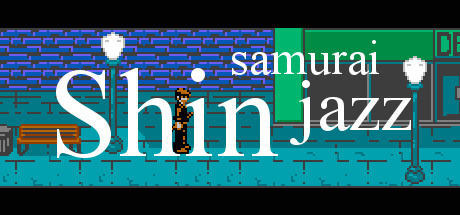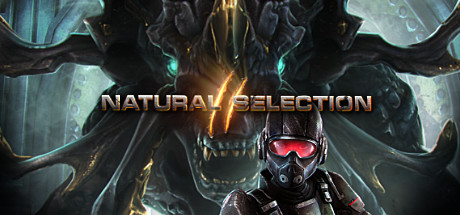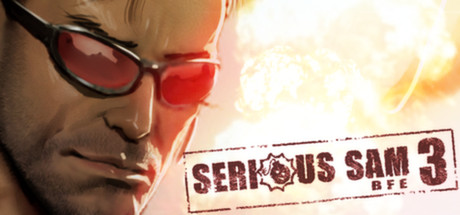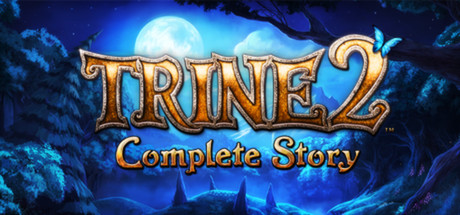Shin Samurai Jazz Reviews
Shin Samurai Jazz is a platform-adventure game. It combines the likes of film noir and samurai cinema, presenting them with 8-bit graphics, an electro-jazz soundtrack, and a comic/manga-like style creating a unique atmosphere.
| App ID | 354970 |
| App Type | GAME |
| Developers | Blaze Epic |
| Publishers | Blaze Epic |
| Categories | Single-player, Steam Achievements, Partial Controller Support |
| Genres | Indie, Action, Adventure |
| Release Date | 16 Mar, 2015 |
| Platforms | Windows |
| Supported Languages | English |

90 Total Reviews
59 Positive Reviews
31 Negative Reviews
Mixed Score
Shin Samurai Jazz has garnered a total of 90 reviews, with 59 positive reviews and 31 negative reviews, resulting in a ‘Mixed’ overall score.
Reviews Chart
Chart above illustrates the trend of feedback for Shin Samurai Jazz over time, showcasing the dynamic changes in player opinions as new updates and features have been introduced. This visual representation helps to understand the game's reception and how it has evolved.
Recent Steam Reviews
This section displays the 10 most recent Steam reviews for the game, showcasing a mix of player experiences and sentiments. Each review summary includes the total playtime along with the number of thumbs-up and thumbs-down reactions, clearly indicating the community's feedback
Playtime:
14 minutes
Yet another retro style game that feels like something from the NES-era. And that's not always a good thing. Some aspects of that era should be left behind forever, stiff control and movement scheme is most certainly one of those things.
It is quite possible, that this game has enough content for people, who are willing to look past the controls and the overall look, so i won't rate it too low, but on the binary rating system of Steam it still means "not recommended". 6/10
👍 : 3 |
😃 : 0
Negative
Playtime:
144 minutes
Liked the game, I play this when I'm feeling sad/anxious, the chill atmosphere combined with the active gameplay kinda reboots my mood, so it works for me so far.
It needs an update tho, the controls are buggy and I don't know why the fuck the enemies respawn when they are outside, it's stupid.
👍 : 0 |
😃 : 0
Positive
Playtime:
31 minutes
This game really pushes me to my platforming limits. However, you respawn at the beginning of each room when you die. However, you have to really figure out how to win. Wall jumping to that one safe area, but fortunately spikes won't immediately kill you. Wish there was a health bar though. I do feel this is more of a puzzle platformer since you also have to think about how to fight some enemies, and not let them barrage you. The bigger guys you better "Punch the keys for God's sake," as Sean Connery would say in Finding Forrester. Otherwise, they'll recover and mop the floor with you.
I also love the music and it is worthy of the title, Shin Samurai Jazz. Feels like Samurai Champloo, using another type of music and blending in with Japanese culture.
👍 : 0 |
😃 : 0
Positive
Playtime:
149 minutes
Just like its predecessor samurai_jazz, this game may come up as a tough sell. But I'd REALLY love to see a speedrun of this game!
Samurai Jazz is, in a way, a hymn to traditional games that goes beyond what we may be used to: not only it looks retro, it also feels retro in terms of timing-related difficulty spikes.
Following the foosteps of samurai_jazz, you control a beret-wielding samurai that must slice through its enemies. Unlike the original samurai_jazz, however, this game plays like a typical platformer with jumping at its core. Expect the precise timings of 'jumping' and 'dashing' to be your main cause of trouble from this game, but also the most exciting part to look at.
Ironically enough, this switch in gameplay mechanics actually works for the better, when compared to its predecessor: you won't accidentally access some areas by mistake and there aren't that many issues caused by perspective, for you only go right, let and jump.
My main issue with this game, though, is not the fact that it's too difficult or that it seems cheap: it is, indeed, challenging and it should have autosaves for each time you change a room, but that sets the game apart, in my opinion. Rather, it's the fact that, sometimes, it feels like there are either bugs regarding jumping mechanics or something that wasn't explained to begin with. Right at the end of the game, for example, after sliding through a wall, I could jump, dash and then jump again. But some other times, I could only dash and jump. I can assume this is a bug, and it's a big game-breaking in my opinion, but not that serious. There seems, however, to be a way to jump higher which I never managed to completely understand, and that was REALLY important at the end of the game: I believe it was caused by jumping while pressing the trigger for dashing, but I never managed to fully grasp it. It might've been just dumb luck!
I had another major issue concerning the interface. Like the first game, one might have difficulty setting all objects you can interact with apart. I felt this to be the most troublesome in a stage containing many gates that seemed well shut and, at the end, only one of them could be accessed to at a time. I had to watch a walkthrough to pass this part of the game, and since timing skill is the main focus of the game, this type of situation doesn't benefit the game itself. It just seems cheap!
I do still recommend this game, though, and it seems more polished than the original samurai_jazz. And for the price of a buck, I can still see Shin Samurai Jazz getting a cult following around speedrunners.
👍 : 0 |
😃 : 0
Positive
Playtime:
22 minutes
I think I played more than the recorded 0,4 hours. It wasn't very good. The controls were stiff, platforming sections iffy, but I can appreciate the basic idea behind it.
👍 : 0 |
😃 : 0
Negative
Playtime:
25 minutes
It ain't good. Samurai Jazz was at least ironically fun, but this one is downright miserable.
👍 : 0 |
😃 : 0
Negative
Playtime:
35 minutes
I really liked the gameplay, ambiance and just general "feel" of samurai_jazz, so I was pretty excited to play the sequel...
Unfortunately this is nothing like samurai_jazz. Shin Samurai Jazz has the same music and similar art style, but totally different gameplay mechanics. I liked the acheievements for less deaths, having bosses at points other than just the end of the game and a little more "story" to explain some of the weirdness. Adding those to samurai_jazz would have made it even more fun and enjoyable.
The big letdown here is that Shin Samurai Jazz is not a side-scrolling beat-em-up like the previous game, but a meat boy style platformer with some beat-em-up mechanics.
👍 : 6 |
😃 : 0
Negative
Playtime:
10 minutes
Game has a cool concept but gets way to difficult to fast interms of jump machanics and spikes.
👍 : 9 |
😃 : 0
Negative
Playtime:
17 minutes
I wanted to like this game, but even for a retro title, the combat is unacceptable.
The soundtrack is nice yes, but it doesnt make up for lack of depth in the gameplay.
The menu is hellish, and the graphics leave lots to be wanted.
There are many retro games that just look "nice", this isn't one of them.
ENVOY RATED: 3/10
👍 : 10 |
😃 : 0
Negative
Playtime:
296 minutes
My thirsty blade burns
Hotter than kitsunebi,
Cooler than square bass.
One of the most telling signs, in my opinion at least, that a game designer is doing something really right is when I can spot his or her fingerprints immediately on a game. Eric Chahi's fingerprints are all over Another World and Heart of Darkness, for example, but one can feel his presence in Flashback's DNA, too, even if it's clear that the game wasn't his own work. Jordan Mechner's cinematic eye is similarly unmistakable, and elements of it can be felt most powerfully on another game from this author...but Larry Stover (aka Blaze Epic) rightly holds his place as a game visionary of his own, and his titles, though influenced by Mechner, have a distinct flavor of their own, and can be recognized by his fingerprints as readily as Chahi's and Mechner's titles can be recognized by theirs.
If Mechner is Cheb Khaled, then Stover is Rachid Taha, a little wilder, a little earthier, a little more raw and visceral, and a little less constrained by form. The ponderousness of the flesh evident in the inertia of Mechner's unnamed Karateka and Prince is remembered but not heeded. Blaze Epic's games feature protagonists that soar, float, defy gravity, and whose true capabilities grow apparent only when you silence the empirical "traffic cop" chasing after them, demanding they stop making a mockery of physics. These games have flow, have a tight, bespoke timing and range of motion that would remind one of a slightly less punishing Ninja Gaiden (the NES version in particular), and a large part of their reward sets in once you enter their "zone," and flow with the almost-flying protagonist. The controls of the game feel strange and alien until you learn to move with them, and then you're Zatoichi for a glorious moment.
Blaze Epic's games share a few common qualities; they're all finesse-driven platformers with a decidedly retro graphics style. (I taste SMS influence in particular, as the Jump/Boxer cover art suggests.) Significant, small differences tune the physics and flow of each title, but there will be much jumping, and the games' magic comes from learning what one can do with jumps. There will be many frustrating deaths. There will be many "missed it by that much" moments. Seeing the next screen is a palpable reward. For all that the simple combat controls seem, at first glance, to be button-spammingly simple, success in the game is much more about finding rhythms than rapidly hammering triggers. The controls are frustratingly literal in the way anyone fond of third-generation consoles will immediately recognize and love-while-hating.
Having set the stage, let me tell you why Shin Samurai Jazz is my favorite of these titles.
The world of Shin Samurai Jazz is a noir pulp novel steeped in Jazz Age chic, with a rather Moby-esque low-key electrojazz soundtrack that anchors one in tones of rainy streets at night, distant music and laughter, secrets and mysteries. The atmosphere drips, and the mixture of goons and yokai encountered, with their markedly different combat styles, keep the fights interesting and particularly varied. Yes, you can try to power through by hammering the attack button, but learning your deceptively varied move set and employing it wisely has proven to be a far more useful strategy, in my experience. Once you really get the hang of dashing back and forth, dropping in and out of stance, and hurling enemies aloft for airborne slicing and dicing while taking advantage of the chuunori-inspired jump-and-dash physics, you'll appreciate just how much variety there can be in a one-attack-button game, and how much of a difference learning your moves makes.
The jump-puzzle elements work much the same way; learning your moveset, and slipping "into the zone" with the game's physics, is instrumental. You'll practice double-jumps, jump-and-dash, wall rebounding, wall climbing and sliding, and folks who just rush in and spam the jump button will find some of the trickier levels quite daunting. Understanding one's range of moves, and their relative advantages, is key. That's true, to a degree, in every game, but Shin Samurai Jazz elevates this to a real brightly-polished art. For all that you have a limited number of buttons and moves to worry about, knowing them, and knowing when and how to use them effectively, plays a large role in the game. So many "retro" action-jump-and-run titles focus so heavily on timing and pixel-perfect placement that they neglect to reward good mastery of one's range of options, and good planning, aside from pitch-perfect execution. Whether Shin Samurai Jazz is maddening or simply satisfyingly tricky is, in my experience at least, more a question of how well you speak its language.
Jumping, wall-rebounding, and clever timing play a role in many Blaze Epic games. If you find you'd like simpler combat and more of those deathtrap jumping levels, the Ninjahtic series will probably make you quite happy, and if you'd like even more of a nod to Mechner, The Way Of The Pixelated Fist is his most recognizable love letter to Karateka and Prince of Persia. Shin Samurai Jazz, however, remains my favorite of the titles, for its compelling atmosphere and flavor, and for its surprisingly versatile and mood-reinforcing moveset.
I enjoyed the NES Ninja Gaiden back in the day, quite a bit. Shin Samurai Jazz brings back much of what I loved about it, while fixing a few of the things I really didn't, like the very trouble-prone wallgrab and climb.
Finally, I don't normally discuss price as a factor, but the dollar-or-two pricing scheme of Blaze Epic's games really bumps them to must-owns, if the retro action-platformer with third-gen-console-style difficulty appeals to you. This one or Ninjahtic would both make excellent introductions to the Blaze Epic game family, and as fond of I am of Ninjahtic, I'd personally give Shin Samurai Jazz a recommendation over it, as I think it expresses not just the game mechanics, but the thematic and atmospheric je-ne-sais-quoi, that makes Blaze Epic titles so lovely.
You make a name for yourself as a creator by sticking your neck out, owning a "flavor" and saying, "This is what I'm about." Blaze Epic's games have quite a recognizable tone and character, and of course, tastes will differ, and this little storm of third-gen-consoles and remixed-Japan will not appeal to everyone. They'll surely appeal to some, though, myself emphatically counted among their numbers, and if you're even remotely curious as to whether they're for you, this is a splendid straight-into-the-deep-end plunge into the heart of Blaze Epic's catalog.
👍 : 13 |
😃 : 2
Positive







